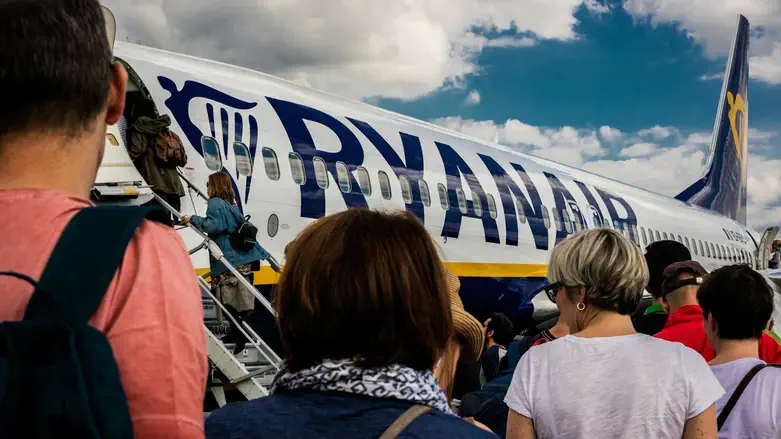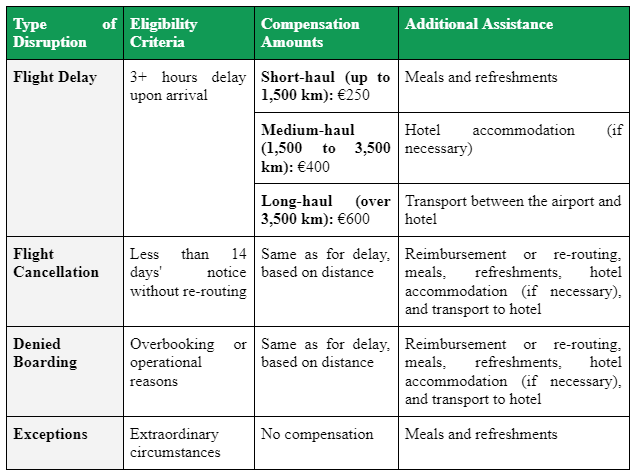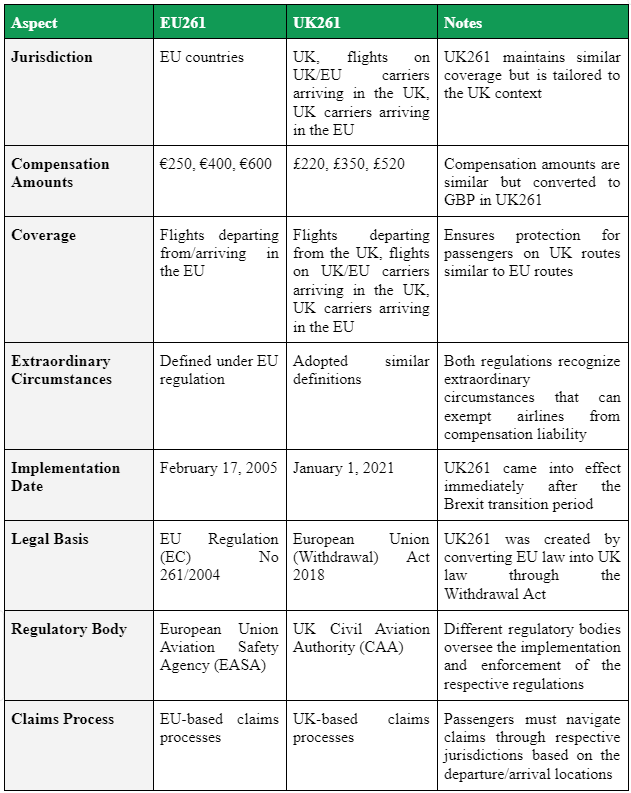
The exit of the United Kingdom from the European Union, known as Brexit, has had wide-ranging effects across various sectors. The aviation industry has been particularly impacted, with changes influencing regulatory compliance and operational logistics.
Ryanair, Europe’s largest airline, is renowned for its extensive network and competitive fares. However, the post-Brexit era has required Ryanair, along with other airlines, to adjust to new regulations, particularly those concerning compensation claims.
In this article, we'll explore how Brexit is affecting Ryanair's compensation claims.
Background
To understand post-Brexit circumstances, it's essential to recognise the historical context of Regulation (EC) No 261/2004—the Air Passengers Rights Regulation. This regulation ensured fair compensation for passenger disruptions, thus boosting consumer confidence and standardising airline industry procedures.
Ryanair's Pre-Brexit Compensation Process
Before Brexit, Ryanair followed EU261 regulations. Post-Brexit, similar processes apply, but the regulatory framework may differ between the UK and the EU.

Brexit Transition
The transition period following Brexit was a critical time for re-aligning legal and regulatory frameworks.
The Withdrawal Agreement and Aviation Provisions
The Withdrawal Agreement outlines the terms for the UK's departure from the EU, aimed at facilitating a smooth transition and ongoing cooperation in the aviation sector. It covers market access, air safety and security, regulatory alignment, and air traffic management.
Changes in Ryanair's Operations and Compensation Claims
Initially, Ryanair faced several changes in its operations and compensation claims procedures. The airline had to navigate new regulatory requirements and align its processes with both UK and EU regulations, leading to increased administrative complexities.
Legal and Regulatory Changes
The post-Brexit landscape brought significant legal and regulatory changes, affecting how compensation claims are handled.
Post-Brexit Framework
The UK introduced UK261, mirroring EU261 but applying specifically to UK jurisdiction. Here are the key points of comparison which show the continuity and changes that passengers and airlines need to navigate.

Impact on Cross-Border Flights Between the UK and EU Countries
Cross-border flights now fall under dual regulatory scrutiny. When leaving the UK for the EU, flights are required to adhere to UK261, while flights returning to the UK fall under EU261.
This duality can complicate the compensation process, as different rules may apply depending on the flight’s origin and destination.
Challenges in Jurisdiction and Enforcement of Compensation Claims
Jurisdictional challenges related to compensation claims enforcement have emerged. Passengers may need to decide whether to file claims under UK261 or EU261, which can lead to potential legal complexities.
If this process feels overwhelming, passengers can get help with their Ryanair compensation claims from trusted portals like https://www.skycop.com/compensation/ryanair/.
Economic and Operational Impact on Ryanair
Financial Impact
The regulatory changes have introduced additional administrative costs for Ryanair. Compliance with both UK261 and EU261 means increased paperwork, legal consultations, and potential payouts in different currencies.
These additional costs have implications for Ryanair's overall profitability and financial health.
Operational Policies
Brexit has prompted Ryanair to adjust its operational policies significantly, focusing on expanding its domestic UK routes and enhancing its market presence through strategic responses to regulatory and economic changes.
Customer Service and Satisfaction
Customer service and satisfaction have faced challenges due to the regulatory changes. Passengers may experience delays in processing compensation claims or confusion over their entitlements, affecting overall satisfaction levels.
Stakeholder Perspectives
Different stakeholders have varied perspectives on these changes:
- Ryanair Management and Operational Teams: Focused on ensuring compliance with new regulations while minimizing operational disruptions.
- Passengers and Passenger Rights Groups: These groups are concerned about maintaining fair compensation and clear communication of their rights.
- Legal Experts and Consumer Protection Agencies: Emphasize the importance of clear regulatory frameworks and effective enforcement mechanisms to protect consumer rights.
Conclusion
Brexit has reshaped the aviation sector, especially regarding compensation claims. However, this transition shows that airlines can change and stay strong when big political and economic issues happen.
As regulations keep evolving, Ryanair and other airlines need to ensure they can handle the changes while still providing dependable and fair service to passengers.